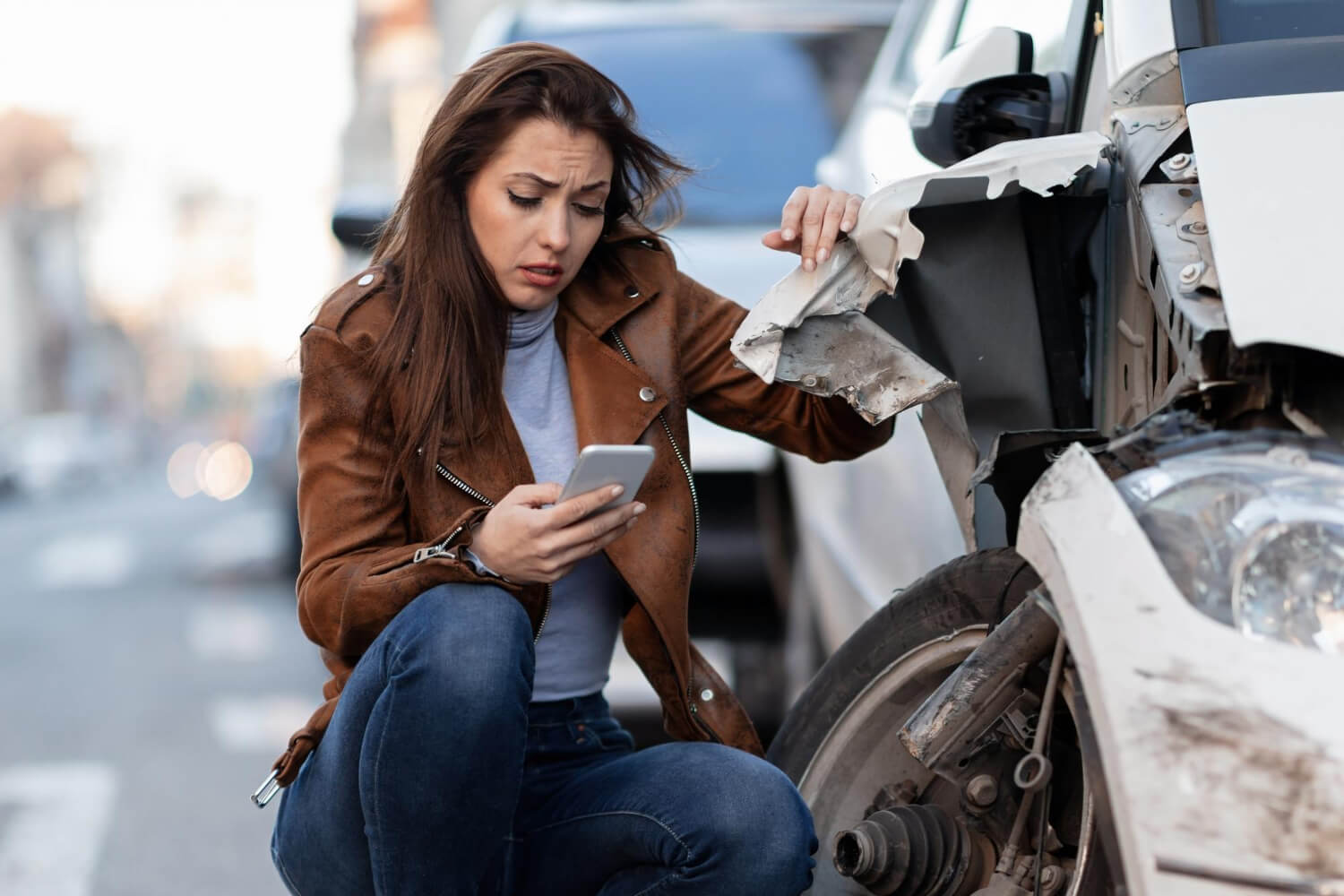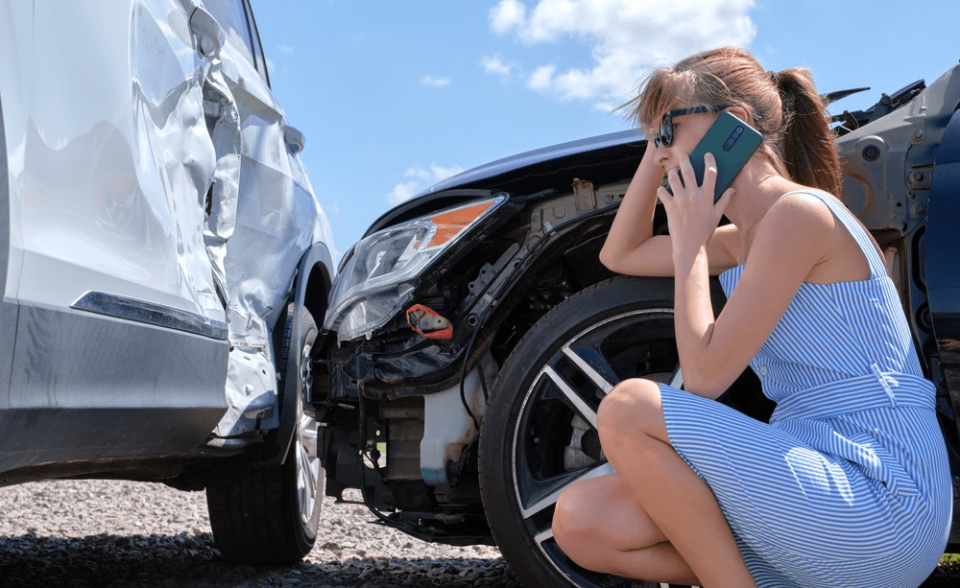Is your car in worse shape than you thought? Sometimes, accidents or unexpected incidents can leave your beloved vehicle in a sorry state. You might be wondering whether it’s time to say goodbye and move on. That’s where we come in.
In this article, we’re here to help you understand the signs that indicate your car might be beyond repair, and when it’s the right time to let it go. Don’t worry; we’ll keep it simple, so everyone can grasp the crucial information they need to make informed decisions about their vehicle’s future. Let’s get started.
What Does “Totaled” Mean?
You might have heard the term “totaled” when it comes to cars, but what does it really mean? Let’s break it down:
A totaled car:
When we say a car is “totaled,” we mean that it’s been severely damaged or wrecked to the point where it might not be safe or cost-effective to repair. In simple terms, it’s a car that’s in really bad shape.
How insurance companies determine if a car is totaled:
Insurance companies have a simple way of figuring this out. If the cost of repairing the damaged car is more than what the car is worth, they usually consider it “totaled.” They’d rather pay you the car’s value than spend more money fixing it.
Common causes of a car being declared as totaled:
Some typical reasons a car gets declared as totaled include major accidents, floods, fires, or even theft. If the damage is too extensive, your car might end up being called “totaled.”
Is Your Car Beyond Repair? Understanding the Signs
Sometimes, accidents can leave our cars in a sorry state, making us wonder if they are fixable. Here’s how you can tell if your car might be beyond repair:
Visible Damage and External Signs:
- Dents and Crumpled Body Panels: If your car’s body is severely dented or crumpled, it might be a sign of extensive damage.
- Broken Windows or Windshield: Shattered windows or a cracked windshield indicate significant impact, potentially rendering the car totaled.
- Frame or Chassis Damage: If the frame or chassis is bent or twisted, repairing it might be too costly, making the car a total loss.
Mechanical Issues:
- Engine Damage: If the engine is severely damaged, it might be uneconomical to repair, leading to the car being declared totaled.
- Transmission Problems: Transmission issues can be expensive to fix; if they are extensive, the repair costs might exceed the car’s value.
- Suspension and Steering Issues: Problems with suspension or steering affect the car’s safety and drivability, indicating significant damage.
Safety Concerns:
- Deployed Airbags: Airbags deploying in an accident signal a high-impact collision, often resulting in the car being deemed a total loss.
- Damaged Safety Features: If essential safety features are compromised, such as seat belts or crumple zones, it poses a significant risk, making the car unsafe to drive.
- Compromised Structural Integrity: Structural damage, especially if it affects the car’s basic structure, can render it beyond repair and unsafe for use on the road.
When to Sell a Totaled Car
If your car’s seen better days and you’re thinking about selling it, there are a few things you should know. First, you need to consider some important factors before making a decision. Here’s what to think about:
Factors to consider when deciding to sell
- Repair costs vs. car’s value: Is fixing your car going to cost you more than it’s worth? If so, it might be time to sell.
- Safety concerns: Think about your safety and the safety of others. If your car isn’t safe to drive, selling it could be the best choice.
- Legal regulations: Check the laws in your area. Sometimes, there are rules about what you can do with a damaged car.

Understanding the insurance payout proces
- Contacting your insurance company: Get in touch with your insurance company and let them know what happened. They’ll guide you on the next steps.
- Receiving a settlement offer: Your insurance company will make an offer based on your policy and the damage. Make sure you understand the offer before deciding.
Timing considerations for selling a totaled car
Immediate sale vs. waiting for a settlement: You can sell your car right away as you have available buyers like cash for van or salvage car removal, or you can wait for the insurance company’s settlement. Consider your needs and options before deciding on the timing
What to Consider When Selling a Totaled Car
Selling a totaled car can be a challenging task, but with the right approach, you can make the process smoother. Let’s break down the important considerations:
Explaining your car’s condition to potential buyers:
This means telling people who might want to buy your car exactly what’s wrong with it. If there are dents, scratches, or broken parts, be honest and tell them. When you’re honest about the problems, people trust you more, and it’s easier to sell the car.
Where to sell a totaled car:
Private sale:
This means selling your car directly to another person. You can do this by putting up an ad online or in your neighbourhood. When you sell this way, you need to talk openly about your car’s damage, so the buyer knows what they’re getting.
Dealerships:
Some car dealerships might be willing to buy your totaled car, but they might not offer you the best price. It’s an option, but don’t expect top dollar.
Scrap yards:
If your car is in really bad condition, like it’s not safe to drive anymore, you can sell it to a scrap yard or car removal Sydney. They’ll recycle the car, but you won’t get much money for it. It’s a last resort.
Understanding the value of your totaled car:
This means doing some research to find out how much money cars in similar conditions as yours are selling for. This helps you figure out a fair price for your car.
Legal obligations when selling a totaled car:
Every place has rules about selling cars, especially if they’re damaged or “totaled.” You might need to tell the person buying your car that it’s been in an accident and got fixed or that it’s been declared “totaled.” There might be paperwork to fill out to make sure everything is legal. It’s important to follow the rules to avoid problems later.
Conclusion
In conclusion, recognizing the signs of a totaled car and understanding when to sell it is crucial for Australian car owners. Making an informed decision can save you time, money, and ensure your safety. Whether you choose to repair, sell, or scrap your totaled car, being well-informed is key to making the right choice.

